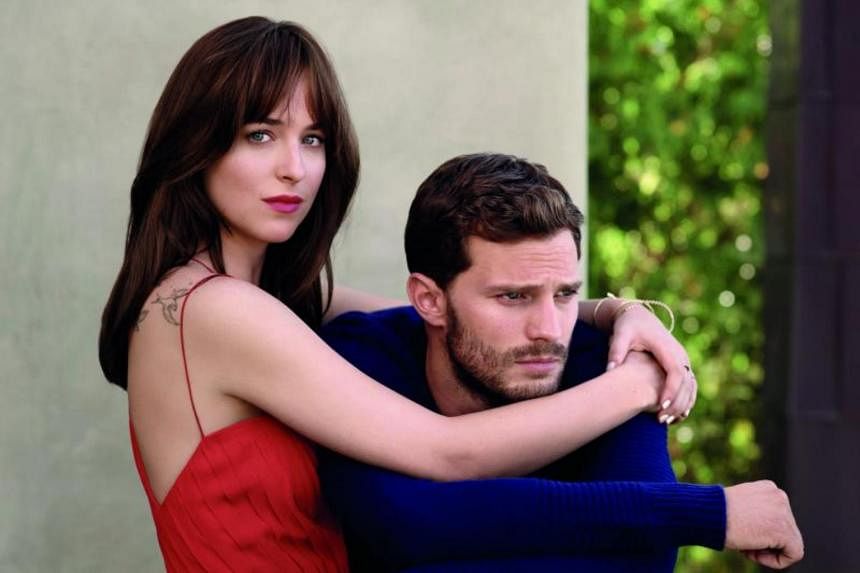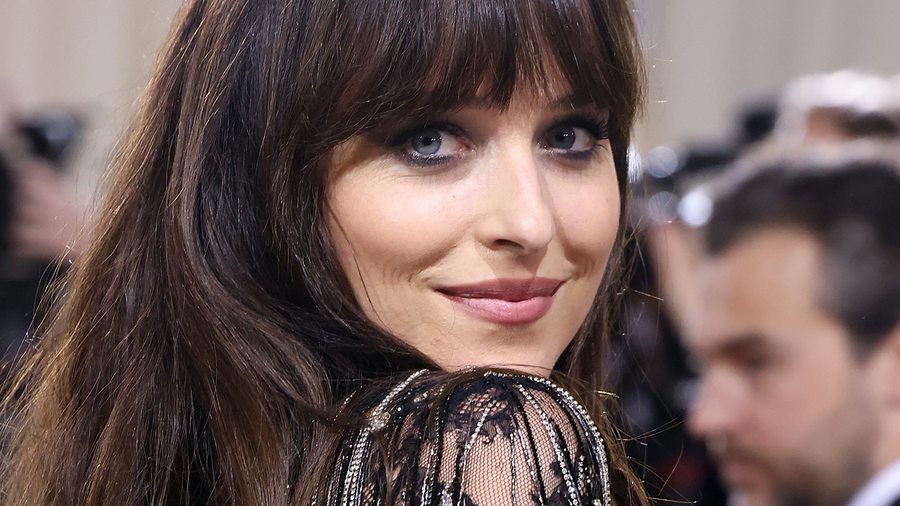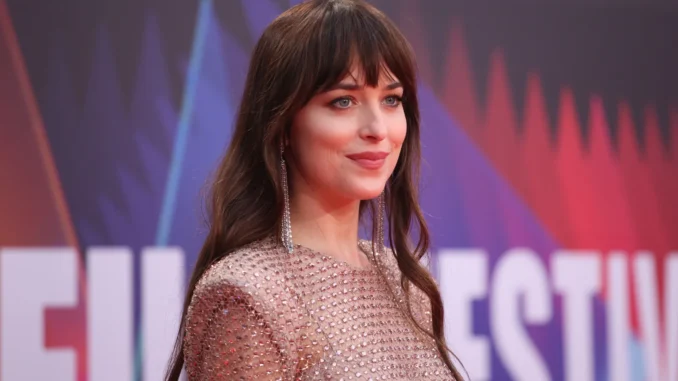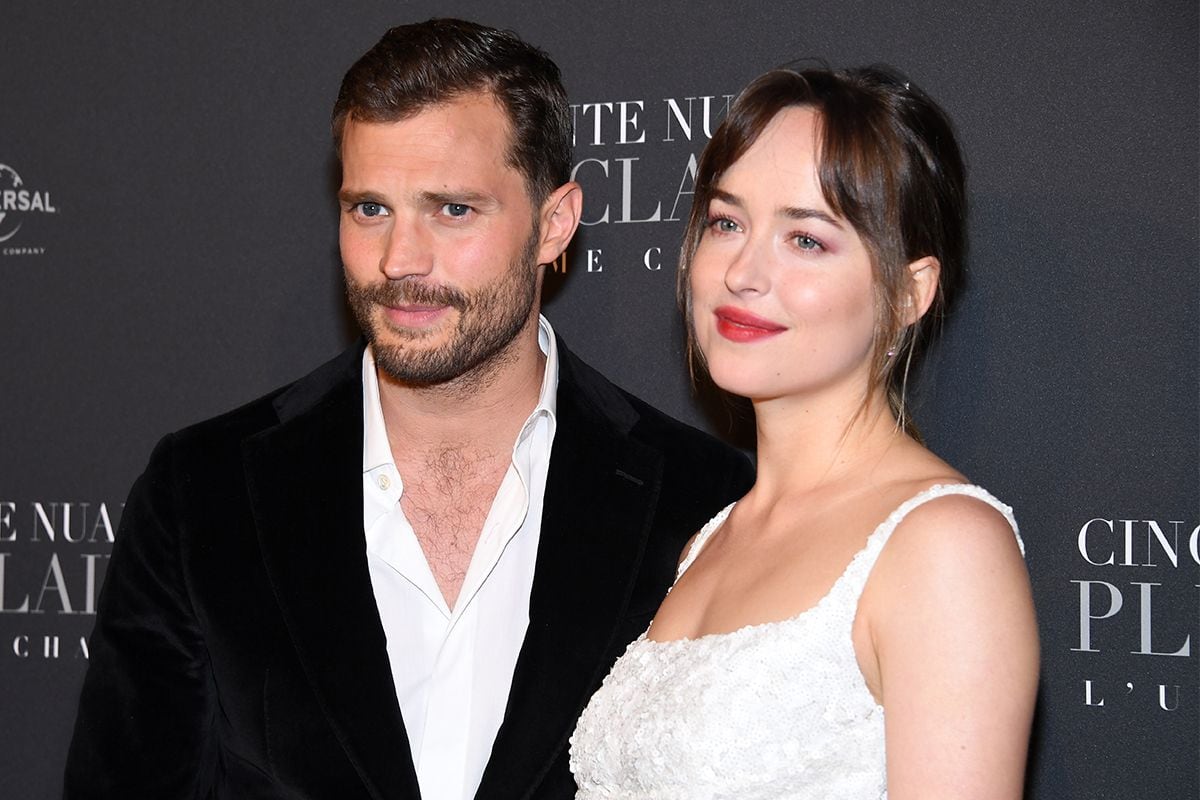As we look ahead to the film’s release in theaters and on Netflix, Johnson discusses shooting on the picturesque island of Spetses during the pandemic, sending Gyllenhaal pictures of Megan Fox as references, and bribing the young actor who played her daughter.
Vogue: The Lost Daughter is such a beautiful adaptation. Was it the script that attracted you?
It was an insanely beautiful script to read and then Maggie [Gyllenhaal] and I had a meeting. It was really honest and soulful. We talked a couple more times, and then she gave me the part. It was during the pandemic, so Maggie and I spent a lot of time on Zoom, talking and sending each other music, photographs, and film recommendations. Maggie has such an incredible way of working with actors because she is one. She made us feel so safe. I felt like I could go to extremes in any direction and I’d be taken care of. So much of this was just about wanting to be around her [laughs].
What were those films, songs and photographs?
It was when we were talking about costume, hair, and what Nina’s look would be like. We were really into Rosalía at one point. Then, I was sending Maggie really early pictures of Megan Fox. She had this sexuality that she seemed really bored with and I liked that. It’s almost like what Nina is wearing is her uniform, but she’s outgrown it. It’s a wild uniform and it’s this picture of her that maybe she painted for herself and now she’s stuck in it, or maybe it’s been painted for her because of what she looks like. It’s about her wanting to break free of the shackles of that identity. There is far more to her than what she’s allowed to be in that family and in that place.
What was it like to arrive in Greece while the world was still in lockdown and quarantine with this incredible cast?
I’m privileged to do this as my job, but then to film a movie in Greece during a pandemic when people were locked in their apartments and dreaming of a beach? It was truly a gift and that was not lost on any of us. It’s a really small island and everyone was kind of involved in the movie. The girls who worked at the local coffee shop were some of the extras. We were all together all the time in a bubble and we all became really close.
The young actor, Athena, who played your daughter is wonderful. How did you bond?
She was four or five when we were shooting. It’s confusing at that age, so we made it all a game. I wanted her to feel safe and connected, so my go-to was bribery. I was like, “I’m going to get this kid bags of candy.” She took it but she wasn’t impressed [laughs].
What was it like working with Olivia Colman? Nina and Leda spend so much time just watching each other.
We had so much fun. We’re quite good friends now and I love her deeply. Maggie gave us space to play. We didn’t really have any deep conversations about the relationship between Nina and Leda, and we still haven’t. There are so many layers to that relationship. You wonder where it’s going just as they wonder where it’s going. But, when we weren’t shooting, Olivia and I weren’t talking about that. We were drinking wine [laughs].
And what about Paul Mescal? Were you a fan of his work on Normal People?
Oh my god, yes. A super fan! On the first day of filming, Paul and I had an intense scene. We hadn’t met each other, he was slightly nervous and I was empathetic. To make everybody comfortable, I told him all of my deepest, darkest secrets [laughs]. Now, we’re very close. He’s a heavenly being. It was his first film. I’m so proud of him.
And beyond working with these amazing actors, what was the appeal of playing Nina, this mysterious woman who wants to be more than just the hot girl on the beach?
It’s not so much that she wants to be something more, but she is something more. But, maybe she’s grown up in a family or a society where she’s not allowed to be something more or isn’t seen for who she is. That is really interesting to me. There are so many different people in us. Nina is drowning in herself and when she meets Leda, she thinks, “Is there something more for me? Could my mind be less hungry? Could I be satiated?” The most heartbreaking thing is that she probably won’t ever be and that’s true of so many women.
Do you also hope the film makes people question their preconceptions about motherhood?
I’m really interested in this world where women are not allowed to feel their feelings, whether they’re scared or uncomfortable. I’m not a mother yet but what’s interesting to me is that this film gives women who are mothers permission to feel all of the complicated feelings that come with that. And it allows women who are not yet mothers or women who don’t want to be mothers to feel how they feel. There’s still this stigma around some women not wanting to be mothers and I just think, why? Maybe this is a little shove towards de-stigmatizing those complicated feelings around womanhood and motherhood.






